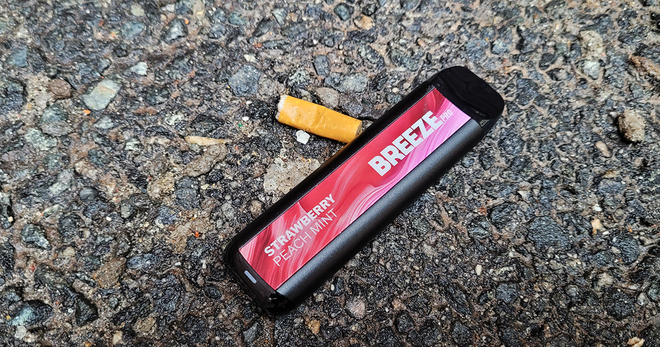Misperceptions about nicotine may interfere with quitting vaping
Recall and belief in misinformation about nicotine and COVID-19 are associated with relapse among e-cigarette users, according to Truth Initiative® research recently published in Health Education & Behavior. Health misinformation, including false information about nicotine, has been rampant during the COVID-19 pandemic and is reaching young adult e-cigarette users who are trying to quit. The study – the first to examine the relationship between nicotine misinformation during COVID-19 and relapses in quitting vaping – underscores the importance of countering health misinformation about COVID-19 and ensuring that e-cigarette users interested in quitting can easily find accurate information and resources to help them do so.
Many vapers believe nicotine misinformation
Can vaping cure covid-19
In June 2021, researchers surveyed 507 e-cigarette users between ages 18-34 who tried to quit vaping in the past year. They asked e-cigarette users if they had heard claims that nicotine can help cure or reduce the severity of COVID-19, or that medical professionals used nicotine gum or patches to protect themselves from the respiratory illness. Researchers also asked e-cigarette users if they believed these claims, as well as claims about vapers having lower chances of contracting COVID-19 or suffering from severe complications compared to non-vapers.
Findings show that nicotine misinformation is rampant: nearly one in three e-cigarette users reported recalling or believing at least one false claim that either nicotine or e-cigarettes could protect them from COVID-19, and nearly one in five believed that either nicotine or e-cigarette use was a positive health behavior during the pandemic.
The study builds on recent Truth Initiative research findings that many young adults aren’t aware of the dangers of nicotine, and that the spread of misleading claims about nicotine, especially regarding COVID-19, is tied to holding more positive beliefs in the tobacco industry. Health misinformation can ultimately undermine public health and regulatory efforts to curb youth nicotine use.
Nicotine misinformation tied to relapses in quitting vaping
Lies about vaping
Belief in misinformation about nicotine is especially problematic and this new study found it to be associated with a greater likelihood of relapsing from quitting vaping. Young adult vapers attempting to quit vaping who recalled and believed at least one misinformation claim about the therapeutic potential of nicotine were significantly more likely to have relapsed – reporting that they had vaped in the past 30 days – compared to those who did not recall or believe such claims. In fact, every piece of misinformation a young adult believed was associated with a 55% increase in odds of a relapse.
The research highlights the need to counter health misinformation about COVID-19. Tobacco prevention and quitting programs should explicitly counter misinformation about the alleged health benefits of nicotine and vaping, the authors write.
Resources to help young people quit vaping
Help to quit vaping
This is Quitting is a free and anonymous text messaging program from Truth Initiative designed to help young people quit vaping. The first-of-its-kind quit program incorporates messages from other young people like them who have attempted to, or successfully quit, e-cigarettes. This is Quitting is tailored based on age (within 13 to 24 years old) and product usage to give teens and young adults appropriate recommendations about quitting. To date, the program has helped nearly 500,000 youth and young adults on their journey to quit vaping.
More in harmful effects of tobacco
Want support quitting? Join EX Program
By clicking JOIN, you agree to the Terms, Text Message Terms and Privacy Policy.
Msg&Data rates may apply; msgs are automated.


